Feeling the untouchable: Haptic touch experiences for naturalistic learning
TOUCH is one of 35 projects to receive funding through round one of UKRI’s highly competitive cross-council responsive mode scheme. It is a collaboration between the Open University, University of Edinburgh, Imperial College London, Learning for Sustainability SCOTLAND and Sight Scotland.
The TOUCH project will address today’s biggest sustainability challenges by bringing researchers, teachers, and students together to co-create tactile discovery experiences of the natural world. We will develop innovative teaching methods that encourage students to explore the natural world in exciting and hands-on ways, including through digital haptic interfaces.
This approach not only enhances students’ observational and critical thinking skills but also integrates technology meaningfully into nature-focused lessons. Ultimately, the TOUCH project aims to inspire children to take action to protect the planet, empowering them to become informed and active citizens for a sustainable future.
Why TOUCH?
By reclaiming the value of touch and integrating it into the learning process, the project promises to make science more accessible, engaging, and relevant to students’ lives, ultimately fostering a deeper connection with the natural world.
A significant component of the project is the development of digital haptic interfaces to allow touch-based science learning in the classroom as well as outdoors. Such hands-on experiences will integrate seamlessly into their education, making abstract concepts such as electromagnetic forces and fields more tangible and understandable. This technology will also enable children with visual impairments to learn through touch alongside their sighted counterparts, thereby also promoting inclusivity and accessibility in education.
Why participate?
Participation affords schools:
- The opportunity to integrate outdoor learning and digital technology across the curriculum to expand opportunities to learn;
- Increased awareness of inclusive methods based on tactile digital inquiries in science;
Through participating, children will better understand, value, connect with, and feel empowered to take positive action in the natural and built environments they inhabit, for example, showing:
- Greater familiarity with the sense of touch, both digital and natural, as a way to ask new questions about the natural world in its variety and difference;
- Increased interest in science and its relevance to address global sustainability issues in ways that are personally relevant;
- Creativity and confidence in playing a leading role in sustainability;
About us
The project is a collaboration between the Open University, University of Edinburgh, Imperial College London, Learning for Sustainability Scotland, and Sight Scotland. The investigators on the project are:
Lead Investigator: Prof. Advaith Siddharthan (Knowledge Media Institute, The Open University)
Co Investigators: Prof Laura Colucci-Gray and Prof Andrew Manches (Moray House School of Education and Sport, University of Edinburgh); Dr Poppy Lakeman-Fraser (Imperial College London), Dr Nirwan Sharma (Knowledge Media Institute, The Open University), Dr Lisa Bower (School of Engineering and Innovation, The Open University)
Researchers: Jonathan Hancock and Carleigh Slater (Moray House School of Education and Sport, University of Edinburgh).






